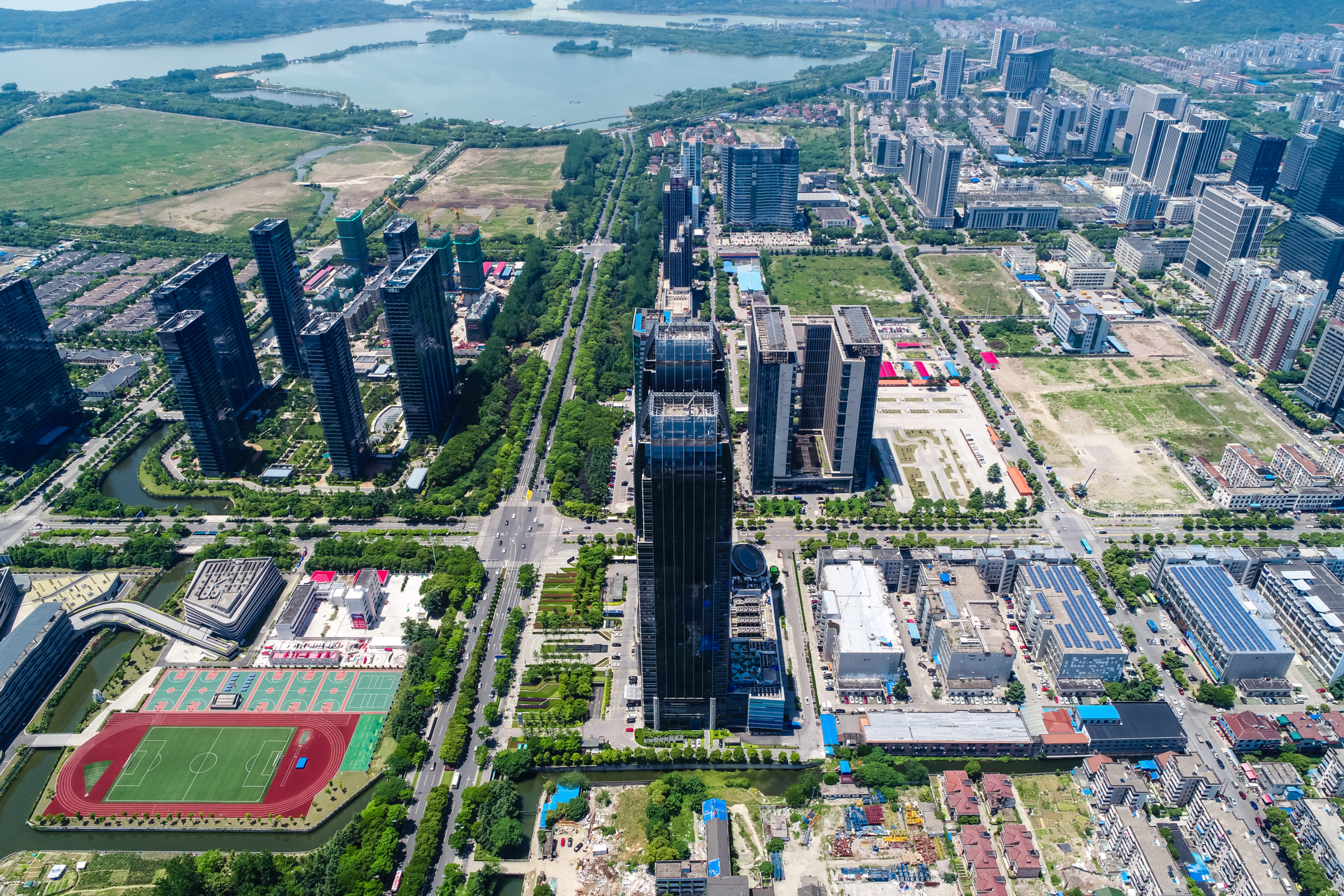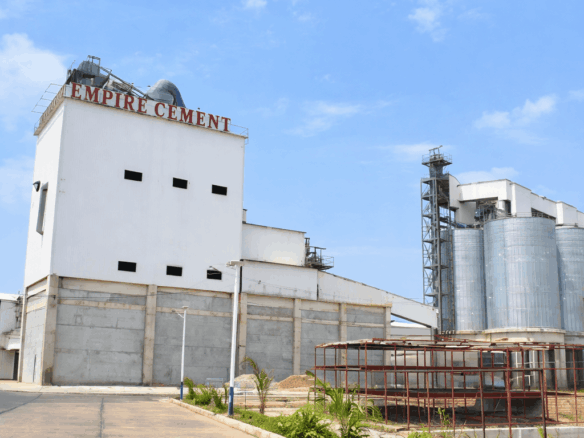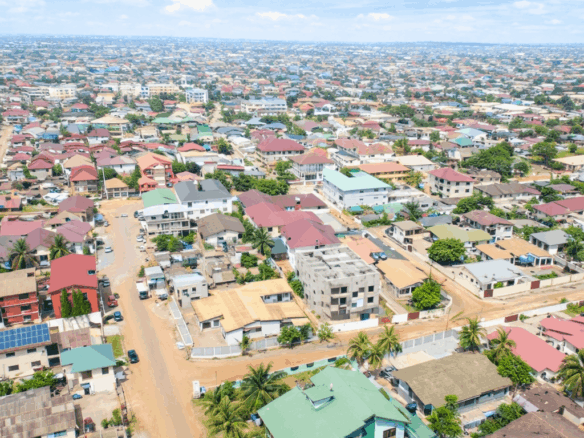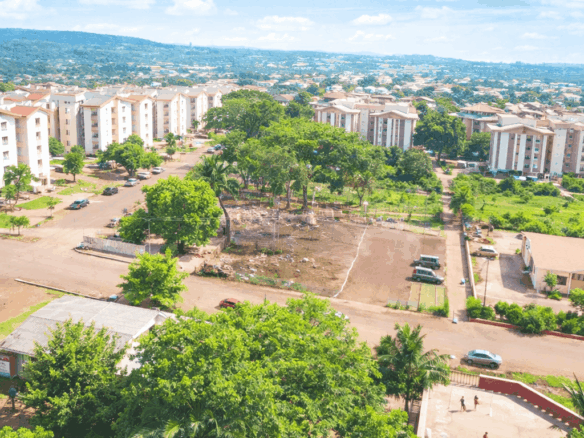Ghana’s vibrant economy is fueling transformation across the nation in 2025, with the real estate sector emerging as one of the most dynamic areas of growth and opportunity. As savvy investors eye potential property deals, understanding the economic forces shaping the market is essential. In this in-depth analysis, we dive into the key trends, opportunities, and challenges defining Ghana’s real estate landscape in this pivotal year.
Ghana’s Economic Surge and Real Estate Ripple Effects
Ghana’s economy has maintained an impressive trajectory, with GDP growth hitting 6.3% in 2024 and early data pointing to an even stronger 2025. This economic expansion is reverberating through the real estate market, spurring demand and accelerating development. The Ghana Statistical Service reports a 15% year-over-year increase in residential building permits, while commercial property values in major urban centres like Accra and Kumasi have jumped by an average of 12%.
The robust economic growth is not only attracting local investors but also catching the eye of international players. Foreign direct investment into Ghana’s real estate sector surged by 18% in 2024, a trend expected to gain further momentum in 2025. This influx of capital is fueling the development of ambitious projects, from luxury apartments to state-of-the-art office complexes.
The Urbanisation Wave Driving Demand
One of the most powerful forces behind Ghana’s real estate boom is rampant Urbanisation. The share of Ghana’s population living in cities has swelled from 57% in 2020 to a projected 61% by the end of 2025. This influx of urban dwellers is straining existing housing stock and infrastructure, igniting fierce competition for residential and commercial spaces.
The mismatch between supply and demand is particularly acute in the affordable housing segment, where a shortfall of an estimated 50,000 units persists. The government’s efforts to bridge this gap through initiatives like the National Housing and Mortgage Fund (NHMF) are gaining traction but still fall short of the burgeoning need. This supply-demand imbalance presents a lucrative opportunity for developers and investors who can deliver quality housing at accessible price points.
Stock Market Surge Fuels Property Investments
Ghana’s stock market has been on a tear, with the Ghana Stock Exchange Composite Index surging by 28% in 2024. This bull run has minted a new crop of high-net-worth individuals eager to diversify their portfolios with property investments. Real estate has long been a favoured asset class in Ghana due to its tangible nature and potential for capital appreciation.
The confluence of stock market gains and economic growth is turbocharging demand for prime properties, particularly in affluent enclaves like Cantonments and Airport Residential. Luxury apartments, sprawling mansions, and upscale townhouses are being snapped up by wealthy buyers seeking to park their gains in a stable and potentially lucrative asset. This high-end segment of the market is expected to remain buoyant throughout 2025, driven by the sustained stock market rally and growing ranks of affluent Ghanaians.
Navigating Inflation’s Impact on Property Values
While Ghana’s economic fundamentals are largely positive, inflation remains a persistent challenge. Consumer price inflation averaged 7.8% in 2024 and is forecast to inch higher in 2025, raising concerns about the erosion of purchasing power and property values. However, real estate has historically served as an effective inflation hedge in Ghana.
Data from the Bank of Ghana shows that property prices have outpaced inflation by an average of 3.2 percentage points over the past decade. This trend is expected to hold in 2025, with analysts projecting property values to rise by 10-12%, comfortably surpassing the anticipated inflation rate. For investors seeking a safe haven from inflation’s corrosive effects, real estate remains a compelling choice.
The Government’s Hand in Shaping the Market
The Ghanaian government is playing an increasingly active role in moulding the real estate market through policy initiatives and infrastructure investments. The landmark National Housing Policy, launched in 2022, aims to deliver 100,000 affordable housing units annually over a decade. While progress has been slower than hoped, the policy is nonetheless bolstering construction activity and easing supply constraints.
On the infrastructure front, major projects like the Accra-Kumasi Highway expansion are enhancing connectivity and opening up new areas for property development. The government’s ambitious infrastructure agenda, which includes a range of transport, energy, and water projects, is expected to unlock significant real estate opportunities in previously underserved regions.
Emerging Opportunities and Risks
As Ghana’s economic evolution unfolds, several real estate niches are emerging as particularly promising. The student housing segment is poised for takeoff as enrollments at tertiary institutions swell. With the number of students in higher education projected to rise by 25% over the next five years, demand for purpose-built student accommodations is soaring. Investors who can deliver quality, affordable housing near major campuses stand to reap robust returns.
Meanwhile, the burgeoning middle class is driving demand for modern retail spaces in secondary cities like Tamale and Takoradi. As disposable incomes rise and consumer preferences evolve, the appetite for international-standard shopping malls, entertainment complexes, and mixed-use developments is growing. Savvy investors are moving quickly to capitalize on this trend, with a flurry of retail projects breaking ground in 2025.
While opportunities abound, investors must also navigate risks such as land disputes, construction delays, and regulatory hurdles. Ghana’s land tenure system can be complex and opaque, with competing claims and informal arrangements complicating property transactions. Thorough due diligence and engaging local legal expertise are essential to mitigate these risks.
Construction delays are another common pitfall, with many projects facing cost overruns and missed deadlines due to issues like material shortages, skilled labour scarcity, and infrastructure constraints. Investors should build contingencies into project budgets and timelines to account for these challenges.
On the regulatory front, Ghana’s real estate sector is subject to a range of evolving policies and requirements. From building codes to environmental regulations, staying abreast of the latest legal landscape is crucial to avoid costly missteps. Partnering with experienced local developers and consultants can help investors navigate this complex terrain.
Conclusion
Ghana’s economic dynamism is transforming the real estate market in 2025, presenting both enticing opportunities and complex challenges. As urbanisation, stock market gains, and government policies converge, investors who can deftly navigate this shifting landscape stand to reap substantial rewards. Yet amidst the excitement, a sober assessment of risks and a long-term outlook are essential. By marrying economic insight with on-the-ground knowledge, investors can confidently stake their claim in Ghana’s vibrant property market.
To explore the diverse range of investment opportunities in Ghana’s real estate market, visit Ghana Property Finder, your trusted partner in navigating this exciting landscape. Our extensive listings span residential, commercial, and industrial properties across the nation, empowering you to find the ideal asset to meet your investment goals. Start your real estate investment journey with Ghana Property Finder today.
FAQs:
-
What are the most promising real estate investment opportunities in Ghana in 2025?
Some of the most exciting real estate investment opportunities in Ghana in 2025 include:
- Affordable housing developments, particularly in rapidly urbanizing areas
- Student housing near major tertiary institutions
- Modern retail spaces in secondary cities like Tamale and Takoradi
- High-end residential properties in affluent neighbourhoods of Accra and Kumasi
- Mixed-use developments that combine residential, commercial, and entertainment components
-
How can I mitigate the risks associated with investing in Ghana’s property market?
To mitigate risks when investing in Ghana’s real estate market, consider the following strategies:
- Conduct thorough due diligence on land titles and ownership claims
- Partner with reputable local developers and legal experts
- Build contingencies into project budgets and timelines to account for potential delays
- Stay informed about the latest regulatory requirements and policy changes
- Diversify your property portfolio across different segments and geographies
- Take a long-term view and be prepared to weather short-term market fluctuations
-
What role is the government playing in shaping Ghana’s real estate landscape?
The Ghanaian government is actively shaping the real estate landscape through various initiatives, including:
- The National Housing Policy, which aims to deliver 100,000 affordable housing units annually
- Infrastructure projects like highway expansions and utility upgrades that open up new areas for development
- Efforts to streamline land registration and titling processes
- Policies to attract foreign investment into the real estate sector
- Partnerships with private developers to deliver large-scale housing projects
-
How is Urbanisation impacting real estate demand and development in Ghana?
Urbanisation is a major driver of real estate demand and development in Ghana. As more people move to cities in search of opportunities, the pressure on housing and infrastructure intensifies. This is particularly evident in the affordable housing segment, where supply struggles to keep pace with the needs of the growing urban population. Urbanisation is also fueling demand for commercial properties like offices, retail spaces, and logistics facilities. Developers and investors who can deliver projects that cater to the needs of urban dwellers stand to benefit from this powerful demographic trend.
-
What are the benefits of investing in real estate as an inflation hedge in Ghana?
Investing in real estate can be an effective way to hedge against inflation in Ghana. Some of the key benefits include:
- Property values tend to appreciate over time, often outpacing inflation
- Rental income from properties can provide a steady cash flow that keeps pace with rising prices
- Real estate is a tangible asset that retains intrinsic value even in inflationary environments
- Property investments can be leveraged through mortgages, allowing investors to benefit from inflation’s erosion of debt
- Real estate offers diversification benefits when included in a broader investment portfolio






